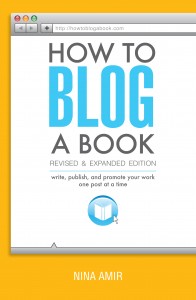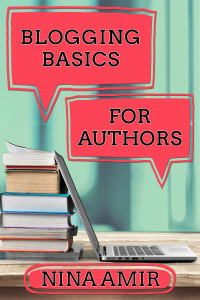
Both newbie and seasoned bloggers often ask the same question: “What’s the optimal length of a blog post?” No definitive answer exists. In fact, the answer seems to change from year to year. Experts continue to pose new opinions and data to help you decide on the best post length for your blog.
In the end, the decision is yours—or your readers’. You want to make the decision with your readers in mind. Also, consider what works best if your site provides the platform to blog your book.
Long vs. Short Posts
If you are marketing guru and bestselling author Seth Godin, you can get away with writing 50-word long blog posts…or shorter. His blog has established search engine ranking. Therefore, he’s not worried about Google indexing his posts, social sharing, engagement, SEO, or even link-backs. No matter how much he write, his posts get read and shared.
If you have just begun blogging, however, you probably don’t have the benefit of Godin’s or bestselling author Guy Kawasaki’s huge platform. That means you may need to write longer posts that provide the Google bots with more key-word-rich content to index. Or you might need to write shorter posts more frequently.
Written well, a longer post should contain more keywords and keyword phrases. These help Google determine the subject of your site and that post and give it a ranking compared to similar content. If you don’t write your post well (meaning in a manner that focuses on your blog topic), you might have a lot of words that mean nothing to Google–or to a potential reader. Then your work won’t help you get more visits, views, or sales.
 If you publish short posts that hone in on one topic frequently and consistently, though, your site will accrue just as many keywords and keyword phrases. You site will benefit in the same ways–with increased engagement, views, visits, shares, and sales.
If you publish short posts that hone in on one topic frequently and consistently, though, your site will accrue just as many keywords and keyword phrases. You site will benefit in the same ways–with increased engagement, views, visits, shares, and sales.
Some content marketers insist that the most successful and high-converting blog posts contain thousands, rather than hundreds, of words. They say longer posts attract more readers, result in higher engagement, and sell more of whatever you pitch.
Yet, if you are trying to publish posts more frequently, writing longer posts could prove difficult. It’s time-consuming to write 1,500- to 2,000-word pieces of content two or three times per week (or more), especially if you are trying to write a book at the same time.
A good blogger or content marketer can pack a short post with a lot of punch, thus achieving similar results as the blogger who writes longer posts but who might not have the same copy writing skill.
Of course, blogging a book helps solve the time issue. But publishing longer “installments” to your book may not work as well. The point of blogging a book is not to serialize the book. You don’t want to publish whole chapters.
More Content=More Opportunities for #1 SERP Rank
 As a blogger, you want your posts to land on the first page of the Google (or any other) search engine results page (SERP). According to Quicksprout.com, more than 200 factors influence how your content ranks in the SERPs, but the amount of content on a page–or a post–makes a difference. The more content you publish in a post, the more likely that post ends up on the first page of a Google search.
As a blogger, you want your posts to land on the first page of the Google (or any other) search engine results page (SERP). According to Quicksprout.com, more than 200 factors influence how your content ranks in the SERPs, but the amount of content on a page–or a post–makes a difference. The more content you publish in a post, the more likely that post ends up on the first page of a Google search.
Neil Patel at Quicksprout.com says the more content contained on a blog page, the higher the Google SERP position. In fact, many of the pages or posts you find in that coveted #1 position exceed 2,000 words, he writes in this post.
On the first page of the Google search results, your post is discoverable. If it is relevant to a search, the person will click the link and land on your site. That means in many cases that longer posts result in more search-engine traffic by the sheer fact that they end up on the first SERP.
If you recall, after five months of blogging How to Blog a Book, this site achieved #1 Google SERP status. And it has kept it. However, the posts I wrote for the first year–and continue to write, were less than 750 words.
Longer Posts Are Good for SEO
Longer posts do provide more for Google to index, including subheadings and images. The more items that Google indexes on a post, the more likely that post will perform well in searches and receive the traffic that goes with being discoverable.
Of course,if you focus your post upon the topic of your blog, the more words you write the more you organically improve the SEO of each post and your site as a whole. You can’t provide that same kind of SEO in a 50-word post or even a 300-word post. You simply have too few words and less opportunities to use headings and graphics.
The old blogging wisdom offered by successful bloggers (and based upon Google algorithms) recommended publishing a minimum of 300-word-long posts if you wanted your content indexed by Google. Today, experts claim every post gets indexed no matter how long or short. But if your post has just 20 words, it’s hard to provide enough keywords or keyword phrases to move your post to the top of the SERPs. If you don’t have a huge platform of engaged readers who share your posts or link to it, short posts can achieve less-than-desirable results.
In fact, longer content gets shared more often, according to Patel, especially on social networks, a fact that also helps your SEO. If your posts exceed 1,500 words, you’ve hit what he calls the “golden share zone.”
Pointing to a Moz test, Patel reported that longer posts result in more link-backs (from sharing). These links increase your post SEO, and, therefore, your post search ranking.
Length is Not Enough
 Don’t just write long for the sake of writing long, though. You need to have something valuable to say. The posts that rank well provide benefit to their target market. Whether your posts are 300-words or 1,500 words long, they need to answer your readers questions or solve their problems.
Don’t just write long for the sake of writing long, though. You need to have something valuable to say. The posts that rank well provide benefit to their target market. Whether your posts are 300-words or 1,500 words long, they need to answer your readers questions or solve their problems.
To accomplish that feat, you need to know your readers. If you’ve done your market research, you’ll not only know what they want and need when it comes to content, you’ll also know if they enjoy longer or shorter posts. If you don’t know, conduct a quick survey of your subscribers. The results will give you the information you need.
Or take a look at your stats. Which of your posts get read and shared most? Longer posts or shorter ones?
And consider how often you are publishing posts. If you send your readers three posts per day, don’t expect them to read 2,000 words each time. If you send them one post per week, you might find that you get the same SEO and SERP results with a 2,500 post as you do with five shorter posts per week.
To some extent, post length comes down to trial and error. I challenge you to write a few longer posts and see if they fare better than your shorter posts.
Keep one thing in mind, though: If you are blogging a book, longer posts mean you finish the book faster. As a result, you may not build the platform you seek before you complete your manuscript. On the other hand, those longer posts might just garner you a raving fan base more easily and quickly than so many short posts.
Again…try both–long and short post. See which works best given your writing style, your content, and your readers. Then decide for yourself on the optimal blog post length.
Have you found short or long posts perform better for your blog? Tell me about your experience in a comment below.

Hi
I just start my blog ten days ago. I wrote just four posts. My first two posts were long and they attract more comments!
I am following your instructions in your book How to blog a book.
Thanks!
Surinderleen,
That’s great to hear! List your post on this site…see above!
Hi Nina, longer content perform better on search engine and social media sharing according to report.
But I think what really matters is quality.
I personally like to read long detailed articles and also try to write as long as possible on my site.
Anyway nice post and length of this post is idle.
Cheers.
Yes, of course, quality is the top priority for every post. It must provide benefit, Riju. I, personally, don’t think readers have time to read long posts. And I think search engines like to see a lot of new content. And most writers don’t have time to write long posts often. So…I stick with shorter valuable posts intermixed with the occasional longer post.